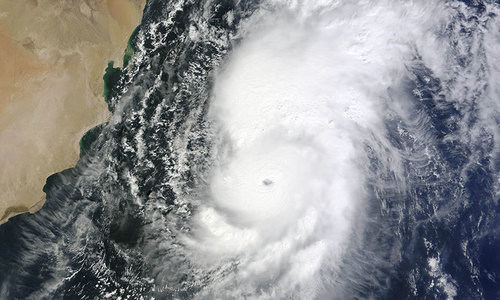PURI: At least three people died on Friday as Cyclone Fani, the biggest in years, slammed into eastern India, sending coconut trees flying and cutting off power, water and telecommunications.
The monster weather system made landfall at the temple city of Puri in the morning, with winds gusting at up to 200 kilometres per hour.
In recent days authorities in Odisha state, where 10,000 people perished in a 1999 cyclone, evacuated more than a million people as they worried about a possible 1.5-metre (five-foot) storm surge sweeping far inland.
One man died of a heart attack in one of several thousand shelters set up, while another was killed by a falling tree on Friday, authorities said.
Media reports put the death toll at up to six, but officials could not confirm this.
Authorities in Bangladesh, where Fani was headed, said a woman was killed, also by a tree, and that 14 villages were inundated as flood dams broke due to a tidal surge.
Disaster management spokesman Mohammad Jahir said that 400,000 people from Bangladeshi coastal villages have been taken to shelters.
Hundreds of thousands more people in India’s West Bengal state have also been given orders to flee. Local airports have been shut, while train lines and roads were closed.
“It just went dark and then suddenly we could barely see five metres in front of us,” said one resident in Puri.
“There were the roadside food carts, store signs all flying by in the air,” the man said from a hotel where he took shelter. “The wind is deafening.” Another witness said he saw a small car being blown along a street by the winds and then turned over.
After pounding Puri and Odisha state capital Bhubaneswar and heading northeastwards, losing strength as it goes, authorities were battling to remove fallen trees from roads and to restore phone and internet services.
On Saturday Fani was expected in West Bangal’s capital Kolkata, a city home to 4.5 million people.
“We are monitoring the situation 24x7 and doing all it takes... Be alert, take care and stay safe for the next two days,” West Bengal’s chief minister Mamata Banerjee tweeted.
The winds were felt as far away as Mount Everest, with tents blown away at Camp 2 at 6,400 metres (21,000 feet) and Nepali authorities cautioning helicopters against flying.
Published in Dawn, May 4th, 2019















































